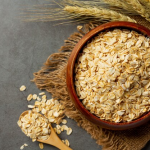Nausea is a feeling of discomfort in the upper abdomen accompanied by the urge to vomit. Nausea, which can be experienced by people of all ages and is often a temporary discomfort, can be eliminated with natural methods that can be applied at home. If nausea persists frequently and does not go away, it should not be neglected to see a doctor to make sure that there is no underlying medical condition.
What is Nausea?
Nausea is a stomach upset in the upper abdomen that causes the urge to vomit but does not always lead to vomiting.
Although nausea is usually a painless symptom, it is uncomfortable. The most common symptom associated with nausea is vomiting. Symptoms also associated with nausea include dizziness, faintness, dry mouth, diarrhea, fever, abdominal pain and decreased urination. Serous symptoms that may accompany nausea include chest pain, confusion, drowsiness, rapid pulse, difficulty breathing, excessive sweating and fainting.
What Causes Nausea?
The most common causes of nausea are conditions that cause rocking and turning, such as motion sickness and seasickness, heavy and fatty foods that cause indigestion, food poisoning, stomach disorders such as ulcers, reflux and gastritis, gallstones, vertigo, migraines, stress and pregnancy.
The general causes of nausea can be listed as follows:
Seasickness or motion sickness
Pregnancy
Food poisoning
Gastritis
Ulcer
Gastroesophageal reflux
Vertigo
Migraine
Treatment methods such as medication or chemotherapy
Stress
Alcohol use
Gall bladder problems
Appendicitis
Heart attack
Kidney stone
Brain tumor
Lactose intolerance
Diseases Causing Nausea
Concussion
Meningitis
Intestinal knotting
Ulcers in the lining of the stomach or small intestine
Appendicitis
Migraine
Brain tumor
What is good for nausea?
Depending on the cause of the nausea, it may vary what is good for nausea. Deep breathing, light and odorless foods such as saltine crackers, drinking ginger, chamomile and mint-lemon tea, as well as sniffing mint or lemon, drinking plenty of water and sucking ice are natural remedies that can help control nausea.
The following methods can be applied to help relieve nausea:
Breathing deeply in and out of the fresh air when nausea is felt
Eating light foods such as low-salt crackers, bananas and potatoes
Drinking stomach-soothing herbal teas such as ginger, linden and mint-lemon
Applying mint or lemon aromatherapy
Suck ice and drink water regularly
Taking a break from fried, fatty and sweet foods that can increase nausea
Eating smaller portions and avoiding hard-to-digest foods
Prefer protein-rich foods and drinks that help regulate stomach activity
Breathe in and out deeply
Deep breathing can relieve nausea. Since oxygen is a calming molecule for the body, it reduces stress and helps prevent nausea. You can do a breathing exercise where you inhale for 3 seconds, hold your breath for 3 seconds and exhale for 3 seconds.
Eat light foods such as low-salt crackers and bananas
Low-salt crackers help to absorb stomach acid and soothe nausea. Bananas, rice, apples or mashed potatoes, which are light foods that can also be good for stomach disorders, are foods that can be consumed due to nausea.
Drink ginger, lime or mint-lemon tea
Ginger is a natural remedy for nausea, its gingerol and antiemetic effect soothes the stomach. You can eat ginger or use it in the form of ginger tea. Some other compounds in mint extract have an antispasmodic effect, while herbs such as chamomile, fennel and cinnamon have a soothing and calming effect.
Apply mint or lemon aromatherapy
There are studies that show that sniffing essential oils, which is an aromatherapy method, has positive effects on nausea. You can smell scents such as lemon, mint and lavender to stop nausea. Menthol and some other compounds in peppermint oil have antispasmodic effects and help relax the involuntary muscles of the digestive system.
Make sure you have a piece of ice and drink water regularly
Water is one of the alternatives for nausea. The reason for using it cold is that cold has a therapeutic effect for many people. It may also be because the body has taken in less water than it has lost. Sucking on ice will also help with nausea.
Avoid foods that are difficult to digest
Foods that the stomach has difficulty digesting can cause stomach disorders. The resulting irritation also triggers nausea.
Eat smaller portions
Consuming food slowly and in small portions puts a strain on the stomach and makes digestion difficult. When the stomach has difficulty digesting the incoming food, it causes indigestion and nausea.
Eat protein-rich foods and drinks
Protein-containing foods and drinks have benefits on nausea, such as helping to regulate stomach activity by increasing the secretion of the hormone gastrin.
How to Prevent Nausea?
To prevent nausea, here are the suggestions you should pay attention to in daily life:
Avoid being in very hot and humid environments
Avoid fried, fatty and highly seasoned foods
Eat small, slow meals and try not to eat foods that are difficult to digest
Do not eat or drink cold and hot foods one after the other
If nausea is recurrent, try taking vitamin B6 supplements
Consume this left regularly throughout the day
Avoid carbonated drinks
Eat protein-rich foods
Avoid activities immediately after a meal
After a meal, lie down with your head elevated to a slight elevation above your feet
When to Consult a Doctor in Nausea?
If the following complaints are observed with nausea, you should immediately consult the nearest health institution.
Chest pain
Vomit contains blood or a dark, brown-colored substance
Severe abdominal pain or cramps
Severe diarrhea
Blurred vision
Fainting
Confusion
Cold, clammy, pale skin
High fever and neck pain
Rapid breathing or palpitations
Frequently Asked Questions about Nausea
How to relieve nausea?
Breathing slowly and deeply in and out in the fresh air, drinking cold water as well as mint-lemon, ginger or chamomile tea that soothes the stomach, light foods such as low-salt crackers and bananas, sniffing mint oil or lemon can help relieve nausea.
What to do with psychological nausea?
Exercising and meditating, lying down and calming down and watching what you eat during this process will be good for psychological nausea that occurs with anxiety and worry.
What to do if you feel nauseous on the road?
If you are going on a long journey, you can take medication for nausea before getting into the car. For short distances, it is recommended not to tilt your head as much as possible when you get into the vehicle. The phone or a book should be placed at eye level and the head should never change its current position. In addition, ventilating the interior of the vehicle, using cologne and sugar, moving to a part where the shaking is less, avoiding heavy foods will be good for nausea on the road, especially on the bus.
Is sugar water good for nausea?
Yes, sugary drinks help to suppress nausea because drinks containing sugar calm the stomach better than other liquids.
Which herbal teas are good for nausea?
For nausea, herbs such as peppermint, ginger, cinnamon and fennel can help cure nausea.
Does migraine cause nausea?
Migraine pain often causes nausea. When migraine pain, which also causes dizziness, reaches extreme levels, it is essential to rest.
Does vertigo cause nausea?
Conditions such as vertigo and inner ear infections can also cause intense nausea. Nausea caused by inner ear problems usually disturbs during travel. The main cause of this car-related nausea is an ear-related balance disorder.
The relationship between stress and nausea
Nausea is also often associated with stress and distress. In cases where excessive adrenaline is secreted due to stress hitting the stomach, nausea also comes with it. Nausea and vomiting are also seen in diseases such as anorexia nervosa, bulimia neurosis, known as weight loss disease. Some mental illnesses such as generalized anxiety disorder and social anxiety disorder also trigger nausea.
Does food sensitivity cause nausea?
Food sensitivities can also cause nausea. As a result of lactose intolerance, celiac disease, nausea also occurs due to the inability of the body to digest gluten and dairy products.
Does headache cause nausea?
Headache alone does not cause nausea. However, migraine-type headache is often accompanied by nausea and vomiting. The etiology of migraine is a narrowing of the cerebral cortex, a decrease in blood winter and then expansion and increase in blood flow, irregular blood supply and a relative pressure in the affected area. Due to the stimuli it brings with it, nausea and vomiting may occur. It is possible to get away from this situation with migraine treatment and precautions.
What causes persistent nausea?
Patients with persistent nausea should definitely be checked by a physician. If weight loss and weakness are added to prolonged nausea caused by the digestive system, it may indicate stomach cancer. Nausea that lasts for years indicates that the problem is psychological. Especially other findings accompanying nausea should be evaluated together.
Is it harmful to try to vomit?
If a person suffers from nausea as a result of a substance entering the stomach, such as gastrointestinal infection or food poisoning, vomiting can relieve the person. However, if vomiting does not develop as a natural process in every case of nausea, it is not necessary to vomit. For example, nausea caused by a condition such as migraine cannot be relieved by vomiting. When nausea is due to eating and drinking, it is considered normal to try to vomit. If vomiting is continuous and uncontrolled, irritations, esophageal injuries, injuries, esophageal tears and bleeding may occur. This is especially common in heavy alcohol users and pregnant women.
In which cases does nausea occur?
Nausea; hepatitis, pancreatic diseases, tense stomach, stomach hernia, tense intestine, reflux, stomach irritation, irritation of the intestinal lining, kidney disease, gallbladder disease, virus-induced constipation and menstruation etc. It is also frequently seen in cases. In addition, there may be nausea that is completely related to the brain. Head trauma, brain tumors, stroke and meningitis are the causes of brain-related nausea. Diseases related to the spinal cord or cerebral fluid can also trigger this condition. It is important to consult a doctor immediately in case of nausea, which can be temporary or sudden.
= =Page content is for informational purposes only. Always consult your doctor for diagnosis and treatment.= =









